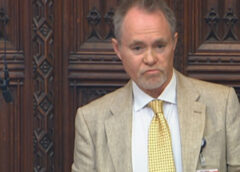Private renters and landlords make up a significant portion of the UK electorate. With this in mind, it should come as no surprise that politicians have been appealing for their votes as we race towards a general election on 4 July.
Around 35% of people in England live in rented accommodation, according to the latest English Housing Survey. Sixteen percent are in social housing, while 19% are in private rented accommodation.
Meanwhile, around 13% of people in Scotland and Wales are private renters, versus 16% in Northern Ireland. It should be noted that a lack of regular data in Wales and Northern Ireland means we have to rely on information from the 2021 Census, so these figures could have shifted slightly since then.
Meanwhile, there are currently around 2.82 million private landlords in the UK, based on income tax data from HMRC. That amounts to around 4% of the population.
Against this backdrop, we look at the key policies each major party has promised when it comes to buy-to-let landlords and renters. How will a Labour or Conservative win affect you?
Read More








